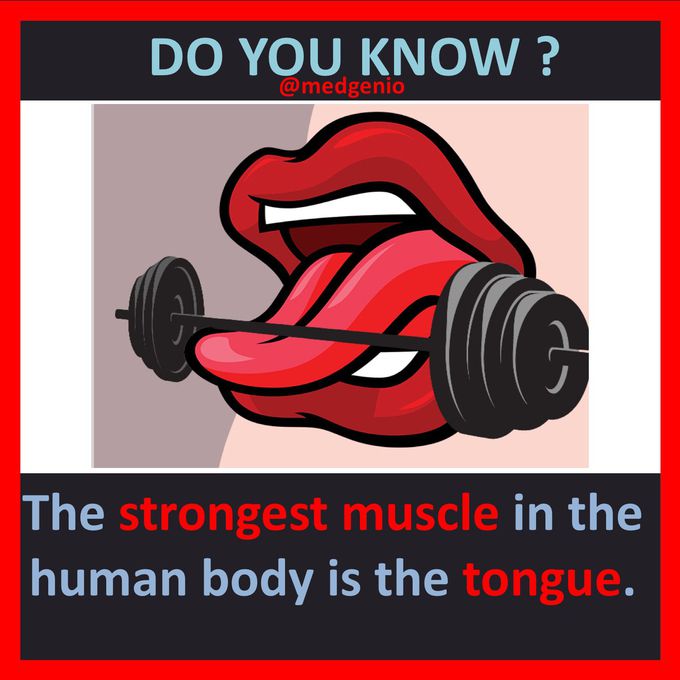
I think it isn't true.. the tongue is never as strong as the rectus femoris
I think the strongest muscles are the oblique muscles and rectus abdominas
Stronger than cardiac muscle? I don’t think it’s correct please provide a reference!
I would not agree with this statement. In ordinary parlance, muscular "strength" usually refers to the ability to exert a force on an external object—for example, lifting a weight. By this definition, the masseter or jaw muscle is the strongest. The 1992 Guinness Book of Records records the achievement of a bite strength of 4,337 N (975 lbf) for 2 seconds. What distinguishes the masseter is not anything special about the muscle itself, but its advantage in working against a much shorter lever arm than other muscles. If "strength" refers to the force exerted by the muscle itself, e.g., on the place where it inserts into a bone, then the strongest muscles are those with the largest cross-sectional area. This is because the tension exerted by an individual skeletal muscle fiber does not vary much. Each fiber can exert a force on the order of 0.3 micronewton. By this definition, the strongest muscle of the body is usually said to be the quadriceps femoris or the gluteus maximus. The heart has a claim to being the muscle that performs the largest quantity of physical work in the course of a lifetime. Estimates of the power output of the human heart range from 1 to 5 watts.This is much less than the maximum power output of other muscles; for example, the quadriceps can produce over 100 watts, but only for a few minutes. The heart does its work continuously over an entire lifetime without pause, and thus does "outwork" other muscles. An output of one watt continuously for eighty years yields a total work output of two and a half gigajoules







